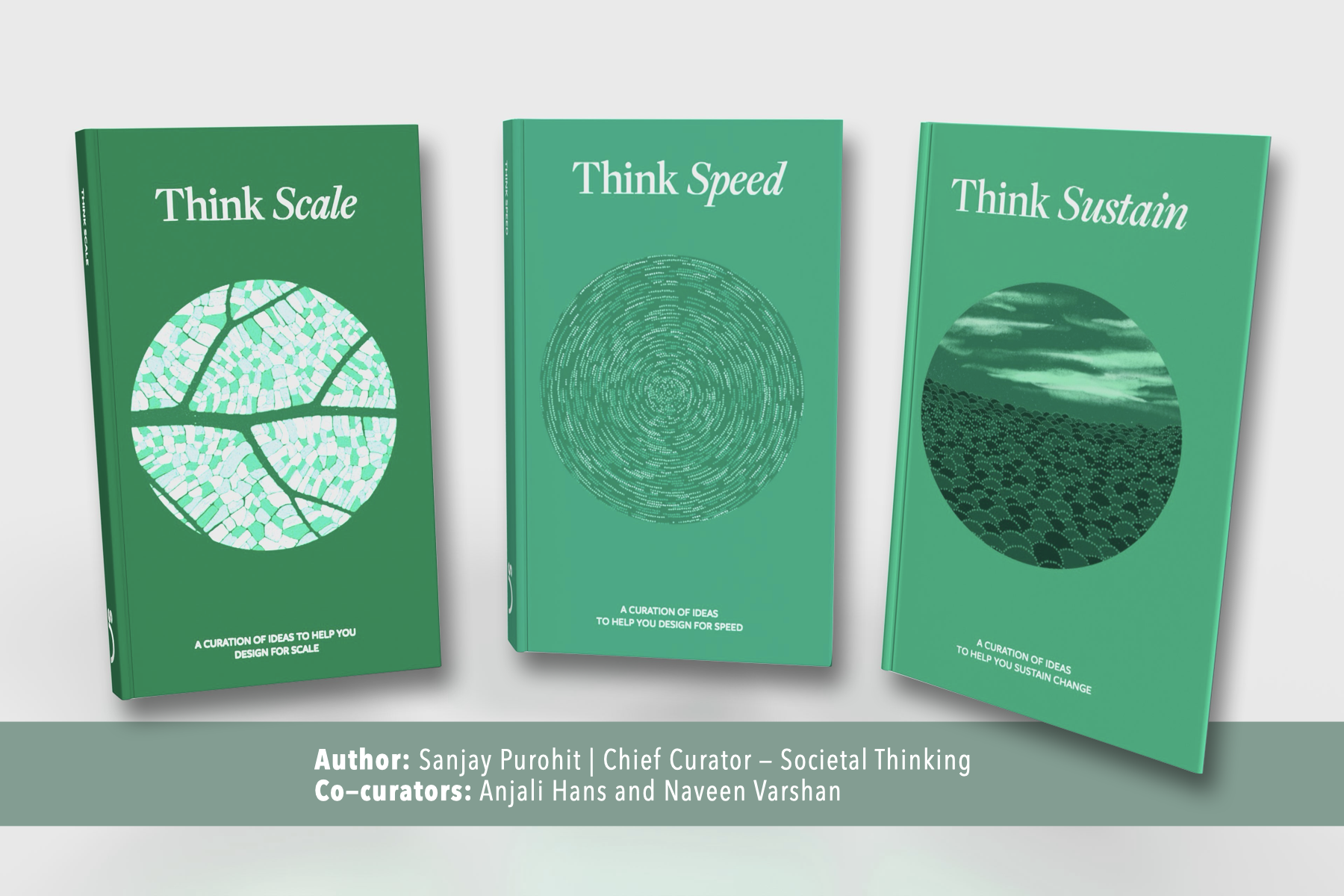In a world breathlessly celebrating success, SELCO Foundation’s invitation to collaborate for ‘Impact Failure Conclave 2022’ took us by surprise. When we brought this up at our weekly team meeting, everyone was excited. “We just don’t talk enough about failures when it should be the most important thing we must talk about, regularly,” a teammate remarked.
There was an instant alignment with the concept since we are deeply invested in failure, given our mission at Societal Thinking is to enable exponential societal change, together. Failures are bound to happen when we work on complex dynamic, mutating social problems. Resilient and trusted systems are not those that don’t break; rather they are systems that thrive under duress, despite failure. Especially while solving at scale, failure is a test of our design.
We orchestrated a workshop ‘Do-Learn-Fail-Do’ at the conclave on Nov 25, with the intent to create an interactive and safe space for everyone to explore their thoughts on failure, at scale and in their contexts. What does scale mean? How is it to experience failure at scale? Can we develop an ability to see, sense and solve for failure? How can we plan for failures to happen, learn from them and move forward?
To discuss these multiple facets, we invited two dynamic and articulate change leaders from the Societal Thinking ecosystem: Viraj Tyagi, CEO of eGov Foundation and Mala Subramanium, CEO of Arghyam.
We learnt that scale looks different to different change leaders. Viraj looks at it as the number of lives eGov is touching; he considers nothing less than 50% of our population as scale. While for Mala it is the unit of change that matters; how can one expand water security to a block or a district? Despite their varying interpretations, they both agree that failure has a big role to play in scale design.
Here are the top three themes that emerged from our conversation with Viraj and Mala:
“Failures at scale are generative”
We do, we fail, we learn, we do. This time do things differently or do different things. Every time, we emerge with better questions if not better answers. “Failures at scale generate value. When a major demo failed, it made us think hard. Can we change the architecture? Can we collaborate? Failure taught us how to work with scarce resources,” said Viraj.
“When we first tried to scale our water security solutions a few years ago, we failed. We assumed that if we plan well, funding will follow. But the mandate for water lies with public departments that are not funding water. So it didn’t work. But we understood it was a problem worth solving,” shared Mala.
“Even to know and acknowledge you have failed is success”
“If your action on ground is within a period of operation or a particular target, you might feel you are making progress, but if you look from the filter of ‘Are you operating at a unit of change that is scalable?’ you might get a different answer. In the scale journey you have to keep questioning the metrics. How to measure impact? Is this what success would look like?” said Viraj.
What may look like success, may not be when seen from the scale perspective. Addressing the myth that ‘pilots never scale and pilots never fail’, Mala said, “I think pilots never scale but it’s not true that pilots never fail. Our pilot was based on a whole set of claims, not facts – and failed. But it got us out of the status quo. That is success.”
“Overcoming the temptation of Do-Fail-Do”
Every time we fail, how do we acknowledge and pause to learn from it? How do we shift our mindset to unbundle that failure, zoom out, think how we can stop scaling what works because it is comparatively easy and comfortable, and how do we start digging deeper into what works at scale, though it may be daunting and push us out of our comfort zone. The need to stay focused on learning from the failure and not the failure itself, and recalibrate our thinking and design is what was emphasised in our conversation.
Creating systemic change is a complicated journey. “Our problem is water, but our answer is probably not in water. It’s in so many things. When we are trying to connect the dots and fail, the temptation is to do some water related action and that is defeating the very idea of scale. It is a tightrope walk,” confessed Mala.
Viraj agreed. “Sometimes when we fail, we just Do-Fail-Do. The temptation to act quickly after failure is very strong. After the failure of our platform demo, which hit us hard, we physically got up and changed where we sat to stop ourselves from acting on those failures!” he added.
What a wonderful workshop it turned out to be! An energetic audience on the one hand, these illuminating change leaders on the other. While failure is an interesting topic by itself, our smaller group discussions helped us all think, talk, write, draw and doodle. Failure really never looked more fun!
As conversations continued way past the closing remarks, echoing down the long corridors of IIM Bangalore, we couldn’t help but reflect, “As messy as failures may be at scale, it is only a journey from point A to point B carrying a bag of lessons!”
To learn more about the discussions at the Impact Failure Conclave, click here.
 Back
Back


